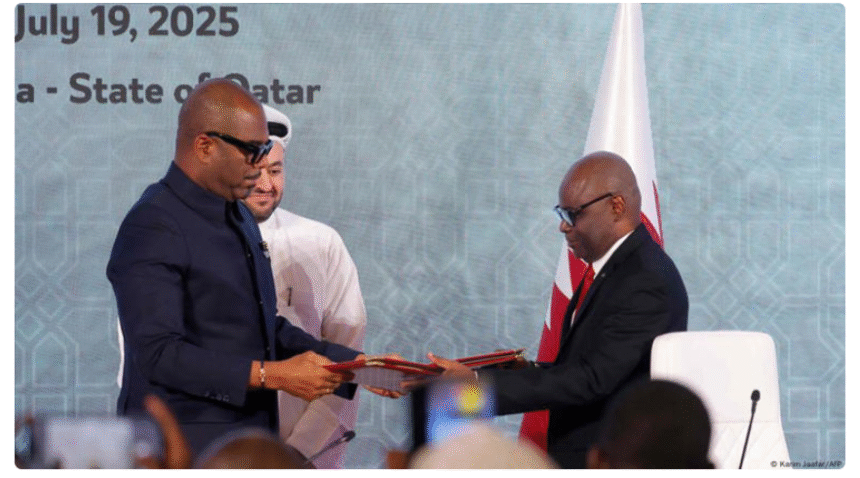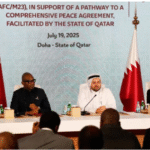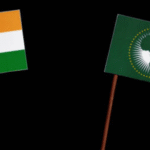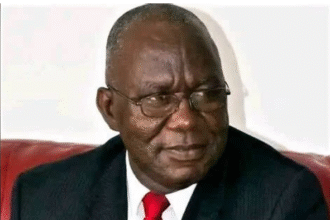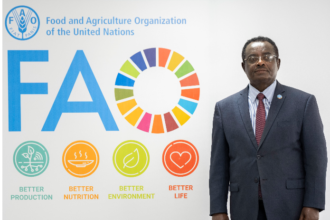By Esther Edoh
LONDON, UK – The Democratic Republic of Congo (DRC) and the AFC/M23 rebels have signed a declaration of principles, aiming to lay the groundwork for peace in the country’s east. However, analysts say the agreement is too vague.
In the declaration of principles signed under Qatari mediation in Doha on Saturday, the Congolese government and the AFC/M23 rebellion affirmed their commitment to seeking a peaceful resolution to the conflict through negotiation, in line with the principles of the DRC Constitution, the African Union, and United Nations charters.
The document commits both sides to a permanent ceasefire, a ban on aerial, ground, maritime, and lake-based attacks, as well as acts of sabotage, hate propaganda, and any attempt to gain new positions by force. They also agreed to refrain from any actions that could undermine the process.
Yvon Muya, professor at the School of Conflict Studies at Saint Paul University in Ottawa, Canada, said that the text’s link to a clear timeline makes it a significant step forward. Implementation is expected by July 29, and negotiations for a comprehensive peace agreement are set to begin on August 8.
The declaration took effect immediately on its signing and provides for the start of direct negotiations for a comprehensive peace agreement in the first week of August. These talks are to align with the Washington agreement between the DRC and Rwanda, which is to take effect next week. The goal is to reach and sign this comprehensive peace agreement within a month.
Another key point acknowledged by both sides is the restoration of state authority throughout the national territory. This implies the return of state institutions — the army, police, judiciary, and civil administration — to areas currently under AFC/M23 rebel control.
However, despite this optimism, divergences surfaced just hours after the signing. Kinshasa claimed it had secured a commitment for the rebels to withdraw from occupied zones, while the rebellion quickly responded, accusing the Kinshasa government of bad faith.
Congolese political analyst Christian Moleka expressed doubt about whether all sides genuinely wanted lasting peace and whether the monitoring mechanisms would work better this time than in the past. The declaration includes no penalties for breaches of the agreement and makes no mention of justice mechanisms — a major point still far from resolution.
A monitoring and verification mechanism are yet to be established to define the terms of the ceasefire and ensure implementation of the declaration. The US, particularly under the Trump administration, has exerted pressure for a durable peace agreement in the DRC and the Great Lakes region.
According to Qatar, “the responsibility for implementing this agreement rests primarily with both parties, namely the government in Kinshasa and the AFC/M23 rebel coalition.”


